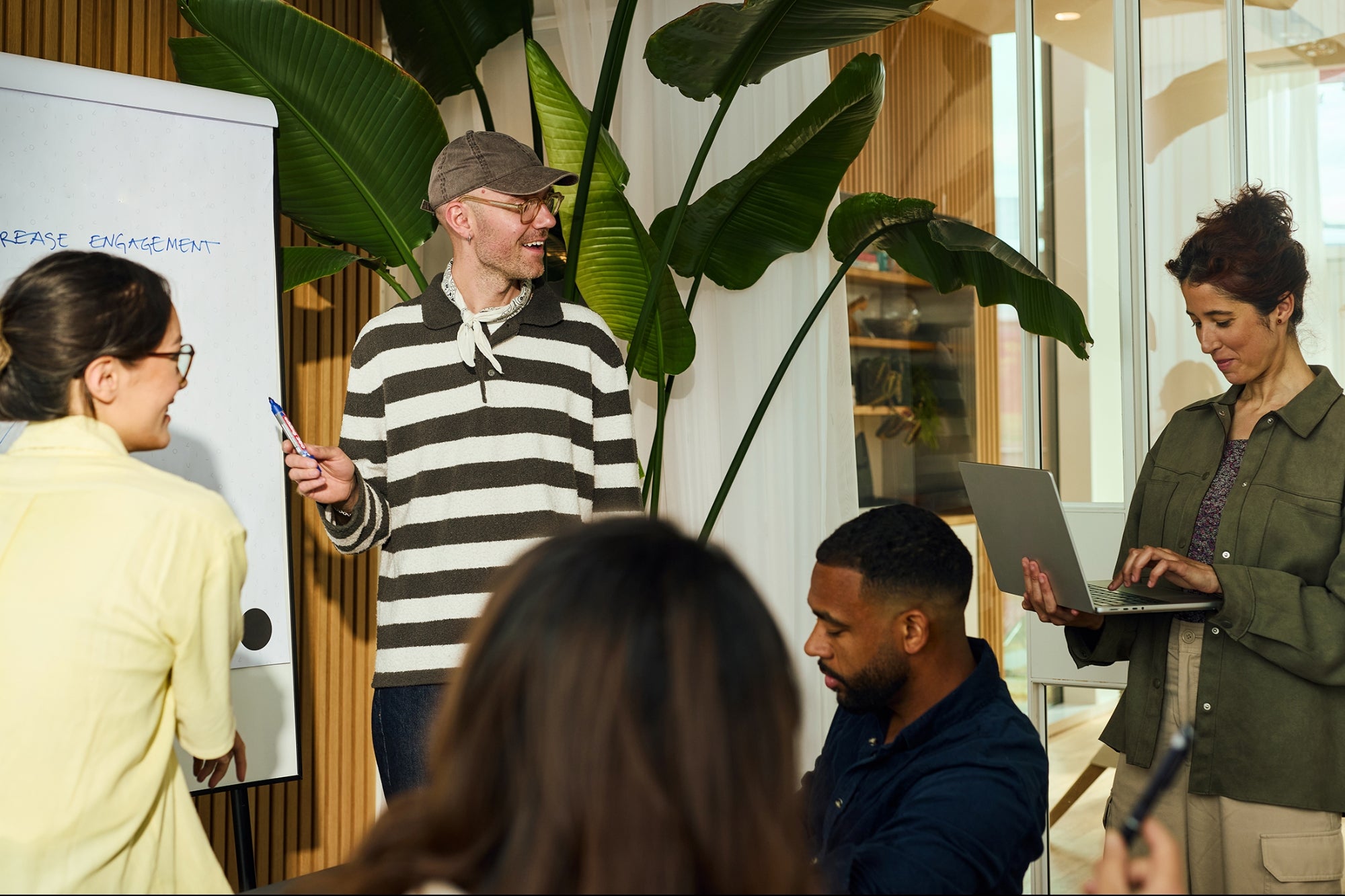Opinions expressed by Entrepreneur contributors are their own.
2022 has been wild. When I think back to this time last year, it feels like a lifetime and a whole business cycle has gone by. In December of 2021, the economy was roaring, investments were soaring, and 2022 revenue forecasts were ambitious.
But as this year ends, like many of you, I am taking stock of a year ending very differently than it started. And because I run a startup company, I am thinking about year-end revenue. But I’m also thinking about how I measure success at the end of a very turbulent year and what it means to build a company for long-term growth and sustainability.
It’s an age-old practice to review annual accomplishments, dissect challenges and analyze lessons learned to inform growth areas for the coming year. But at the end of 2022, it’s particularly important to consider what success looks like. Is it short-term revenue at the expense of everything else? Or are there other ways to think about and measure success? 2022 taught me a few lessons on this front, and I’d like to share three of those and challenge other business owners to think about their measures of success.
Related: The Entrepreneur’s Guide to Building a Successful Business
Lesson 1: Celebrate the Wins
This year has been a rollercoaster for my business, and I’ve heard the same from many other entrepreneurs. And while it’s easy to spot the “downs” and be shaken by those disappointments, being on a rollercoaster also means there were “ups.” It is crucial to look for those when you are measuring your success so that you are also looking for places in your business to double-down and reinvest.
I entered 2022 with high expectations. According to traditional measures of success, we had closed out 2021 on a high: revenues for our first full year were up over 400%, and it felt like we would achieve that elusive hockey stick growth and never look back. We were signing partnerships with big-name organizations and government agencies.
My co-founder and I also decided to sell equity to raise capital to fund our continued growth. The exposure we received by using a crowdfunding platform attracted the attention of Daymond John and resulted in his recommending our company to his Angels + Entrepreneurs Network in March. We closed the investment round on April 30th, just short of our goal. Another great win by any measure!
With funding in place, we begin investing in three key areas: building technology, paying our team who had worked for little or zero salaries since launch and growing our ecommerce training program, HER-Commerce™.
All the while, we were gaining visibility, our ecommerce sales were increasing, and we were attracting attention from strategic partners who shared our mission to support women-owned businesses and promote economic equality. We have had a lot to celebrate, and one of our core values as a company is to notice and celebrate when we have a win. Because building a business is hard.
Related: A Roller Coaster Ride: The Ups And Downs Of Building A Startup During Uncertain Times
Lesson 2: Know when to pivot and where to focus
We are a direct-to-consumer ecommerce business for women-owned businesses, and it’s a truism that for retail, the first quarter of the year is always slow. You can think of it like a holiday hangover. Ecommerce is not immune to that ailment, and The WMarketplace experienced a clear and seasonal slowdown in revenue growth. But, given the other activities in the business, this wasn’t a big worry. Yet.
As spring turned into summer, demand for our HER-Commerce™ training program remained strong, but the COVID-19 stimulus money previously funded many of the participating companies was evaporating. This had a significant impact on our 2022 revenue projections.
At about this same time, it became increasingly clear that the technology we so needed and had planned for needed to be more stable to deploy and that the process with our vendor had run into significant issues. Delays, more investment and time were required.
Then came the increasingly grim economic news that spooked some of our most prominent investors. Less than two weeks after we closed our round of funding, they began asking us to focus on becoming profitable or returning their money rather than following through on the plan to invest in people and technology to build the business. The startup rollercoaster was feeling very “down.”
To reduce expenses and focus on every existing revenue stream, we combed through every business detail. Every line item of spending and revenue-generating business was scrutinized. We re-forecasted revenue, revised marketing plans, surveyed customers and reset partner expectations. We cut expenses everywhere possible.
Some of these decisions were incredibly difficult, including deeply cutting the salaries of our dedicated team that only a few months before we had been so thrilled to begin paying. We abandoned initiatives and implementation of business processes that we had identified to accelerate our growth but took away from team focus and limited resources. We had many sleepless nights.
All signs pointed to the need to focus on our strengths, capitalize where we had achieved success and not get distracted by things we had no control. We developed detailed execution plans for our most profitable revenue streams and focused the team on a narrower set of deliverables. This deep focus is already paying off with a solid pipeline of new revenue developing for 2023.
My end-of-year takeaway is that although this process was sometimes excruciating and included many hard conversations and long hours of crunching numbers and planning, it was very worth it. Our intense focus on our existing revenue streams has made us more efficient and aligned as a team. We are moving forward into 2023 with a solid, executable plan.
Related: How to Know When to Give Up, When to Pivot and When to Persist
Lesson 3: Identify the real measures of success
Like most entrepreneurs, I am impatient. I want to have things move quickly and always forward and upward. I want to always be on the “up” of the rollercoaster! But as December ends, and I reflect on the last year, it’s not through the narrow lens of short-term revenue at all costs. Instead, my lens has grown broader and more profound to include measuring success in measured steps toward building a sustainable, longer-term business.
The reality is that not every year is a “winning” year. Some are building years. In a time when many businesses, large and small, are struggling (and some are going under), and the economic situation is unpredictable, we are solvent and have a list of successes that don’t usually show up on that famous hockey stick revenue chart:
- Five out of six of our founding team members are still working for next to nothing, seven days a week, to drive our business and mission forward.
- We have attracted an incredible community of women-owned businesses that partner, collaborate and depend on us to support their economic growth.
- Commercial and government organizations have publicly supported our mission and business with co-branding opportunities and sponsorships and giving us a voice during events.
- We have built a foundation for a long-term, stable business that will support women’s economic empowerment.
- We are developing deep resilience to manage difficult situations with grace and are staying focused on the important aspects of the businesses.
2022 was challenging. We fell short on some business performance metrics and didn’t achieve aggressive growth goals. But with a new lens that focuses intensely on efficiencies, building a strong pipeline and team and acknowledging the wins, the metrics we set last year may not be the best measure of our long-term business success. Because of the rollercoaster of ups and downs we have had to navigate this year, our business, in many ways, is stronger than ever — even if you can’t see it easily reflected in a chart.
How are you measuring your success in 2022?














